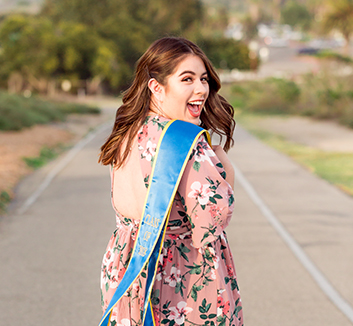Performance in Chicanx Feminism
Mentor: Trish Fancher
Chicanx Feminism encompasses a large variety of genres and styles of writing. For many writers in the field, performance is a form of expression that encompasses theater, visual art, poetry, spoken word, creative nonfiction writing, and embodied performance. To better understand performance in a Chicanx context, I will first explore Women of Color feminism through the literature of Audre Lorde, Cherrie Moraga, Gloria Anzaldua, and more. Performance is a tool for decolonization, self-expression, and political activism. It can also serve as a method of healing from trauma be it ancestral or personal. I will examine the different kinds of performance Chicanx artists use and how it can serve as a tool. Then, I will use the information I have learned from these writers to gather the oral histories of professors at UC Santa Barbara who have created their own forms of performance. Their stories and work as activists, scholars, and teachers will be compiled together in a multimedia project to increase visibility of their stories as teachers and artists who are internationally renowned for their contributions as Chicanx Feminists in academia and beyond. I aim to raise three main questions: how is performance a method of Chicanx Feminism, how do you utilize performance in your work, and what does performance mean to you. This will help me investigate the three main aspects of my project: research regarding performance, oral histories, and writing within the Chicanx framework, a multimedia project that highlights their contributions in Chicanx Feminism, and lastly the successful submission of our work into Special Collections. The oral histories will be available for further research by any scholar or student interested in Chicanx Feminism. Given that UCSB is a Hispanic Serving Institution, my research is especially important. UCSB has a long and important tradition of Chicanx Feminisms, and I hope that more students, scholars, and community members will know this history through my oral history and digital storytelling research. As a Chicanx student, I believe in the importance of including Latinx professors and their stories in the archive, because they have all done notable work not only on campus but revolutionary work in the Chicanx Feminist spheres.

